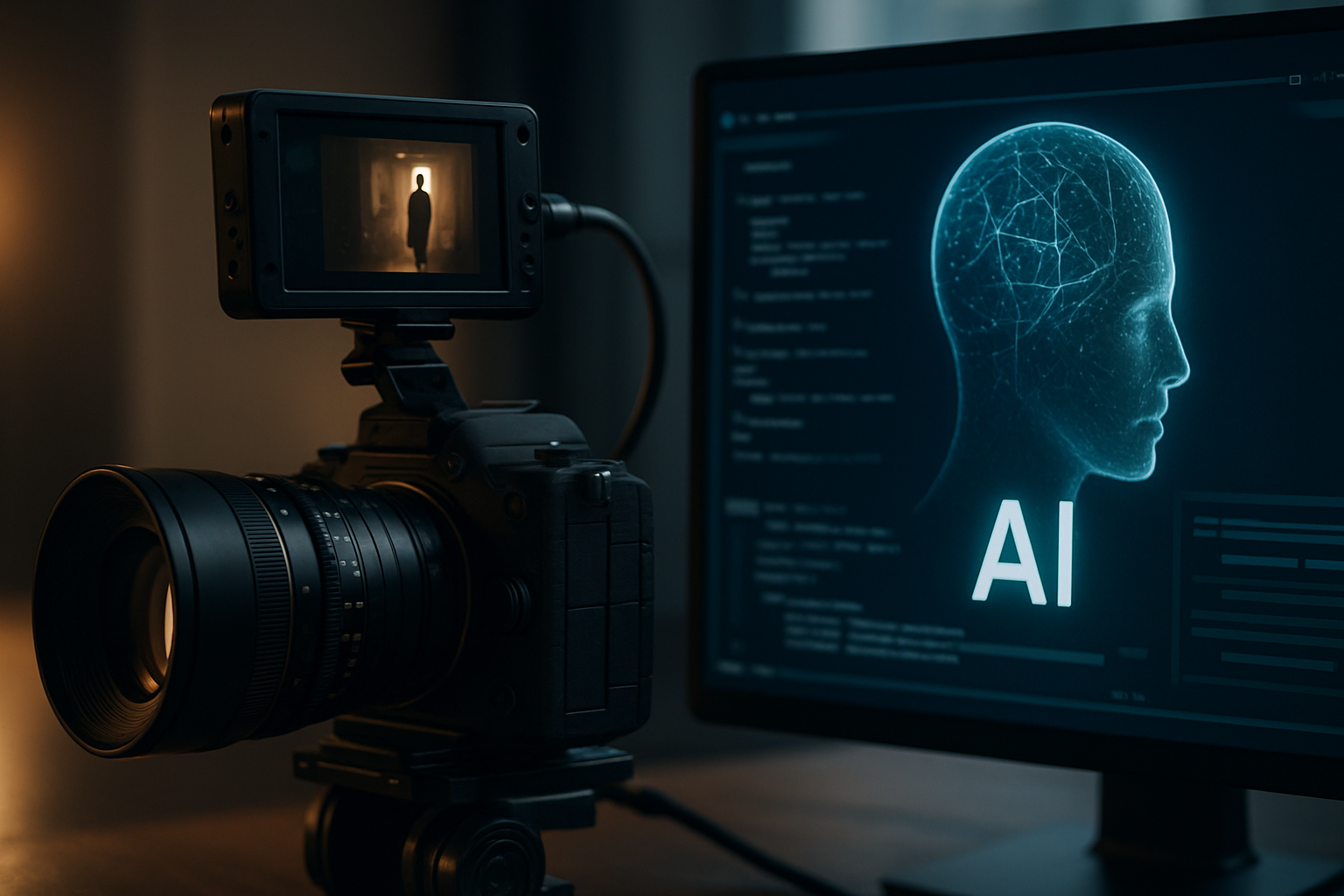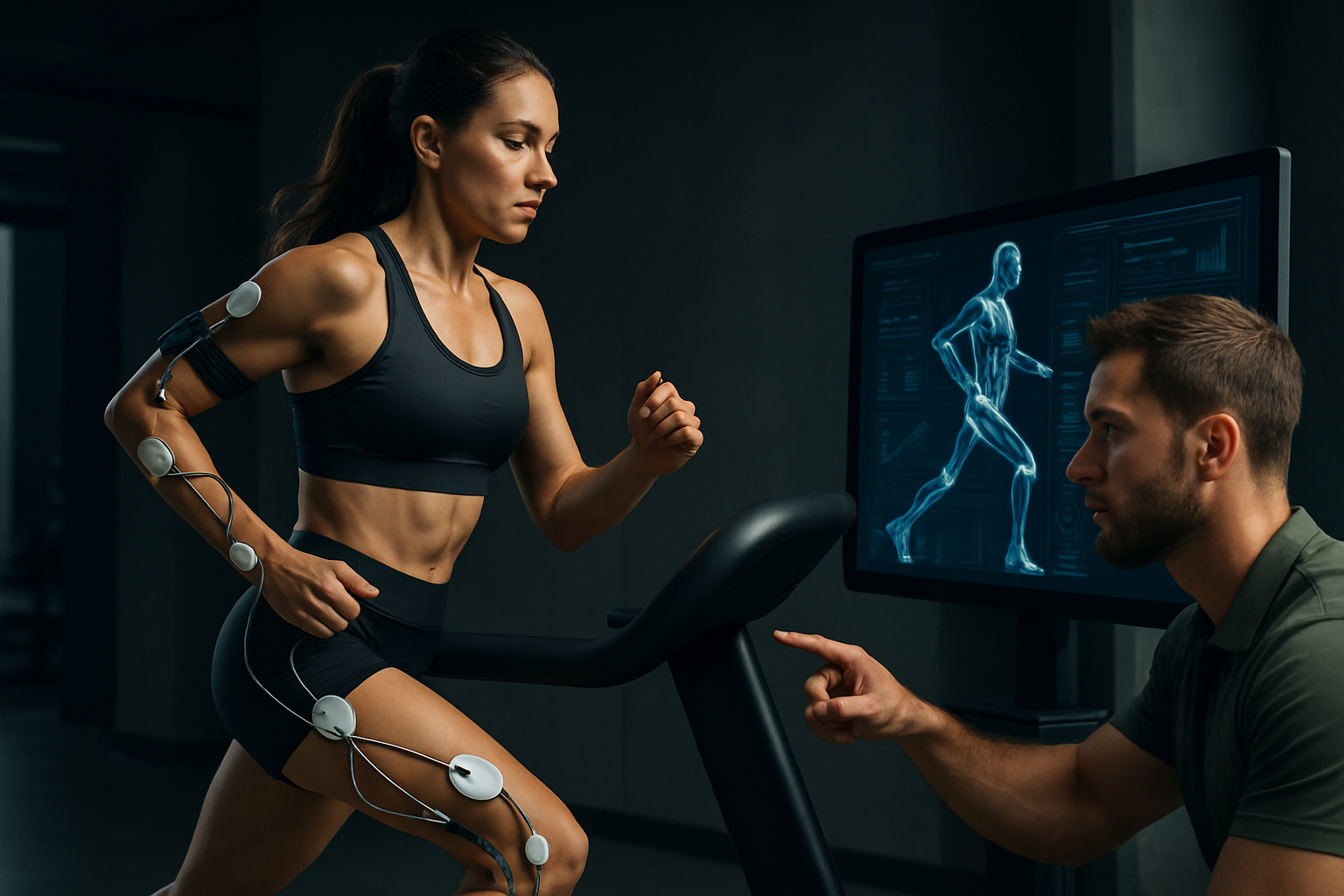The Cinematic Lens of Artificial Intelligence
In an era where technology continually reshapes our world, the film industry stands at the precipice of a revolutionary transformation. Artificial Intelligence, once confined to the realm of science fiction, is now making its mark behind the camera, influencing everything from scriptwriting to post-production. This fusion of AI and cinema is not merely a technological advancement; it's a paradigm shift that's redefining the very essence of storytelling and creativity in film.

AI-Assisted Scriptwriting: A New Chapter in Storytelling
One of the most controversial applications of AI in filmmaking is in scriptwriting. Advanced language models can now generate entire screenplays, complete with dialogue and stage directions. While some see this as a threat to human creativity, others view it as a tool to enhance the writing process. AI-assisted scriptwriting can help overcome writer’s block, suggest plot twists, and even analyze scripts for pacing and emotional impact. However, the question remains: can an algorithm truly capture the nuances of human emotion and experience that make stories resonate?
Visual Effects Revolution: Beyond Human Imagination
The realm of visual effects has been fundamentally altered by AI. Machine learning algorithms can now create hyper-realistic digital environments, seamlessly blend live-action footage with CGI, and even de-age actors with startling accuracy. This technology not only saves time and resources but also opens up new possibilities for storytelling. Filmmakers can now bring to life fantastical worlds and characters that were previously impossible or prohibitively expensive to create. The line between what’s real and what’s computer-generated is becoming increasingly blurred, raising questions about the nature of visual authenticity in cinema.
AI in Post-Production: Streamlining the Editing Process
Post-production, often the most time-consuming aspect of filmmaking, has been streamlined by AI. Machine learning algorithms can now analyze hours of footage, identifying the best takes and even suggesting edits based on pacing and emotional impact. Color grading, sound mixing, and other technical aspects of post-production are also being enhanced by AI, allowing for more efficient and precise workflows. This automation of technical tasks frees up human creators to focus on the more artistic aspects of filmmaking, potentially leading to more innovative and daring cinematic experiences.
The Ethical Implications of AI in Film
As AI becomes more prevalent in filmmaking, ethical concerns are coming to the forefront. Issues of authorship and creative ownership become murky when algorithms contribute significantly to a film’s creation. There’s also the question of bias in AI systems, which could potentially perpetuate or even exacerbate existing stereotypes and inequalities in film representation. Furthermore, the potential for AI to create deepfakes and other forms of synthetic media raises serious concerns about the integrity of visual information and the potential for misuse.
The Future of Cinema in the Age of AI
As we look to the future, it’s clear that AI will play an increasingly significant role in filmmaking. However, rather than replacing human creativity, AI is more likely to augment and enhance it. The most successful films of the future may be those that skillfully blend human artistry with AI capabilities, creating experiences that are both technologically advanced and emotionally resonant. As the industry adapts to this new paradigm, we can expect to see new forms of storytelling emerge, pushing the boundaries of what cinema can be.
In conclusion, the integration of AI into filmmaking represents a seismic shift in the industry. While it brings challenges and ethical considerations, it also offers unprecedented opportunities for creativity and innovation. As filmmakers, technologists, and audiences navigate this new landscape, one thing is certain: the movies of tomorrow will be shaped by the algorithms of today, ushering in a new era of cinematic expression that blends human imagination with artificial intelligence.





